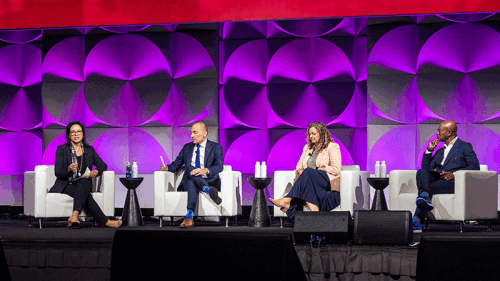A focus on technology, diversity, and the impact of the post-COVID world is key for the next generation of ULI Asia Pacific member leaders, said panelists at the ULI Asia Pacific RE Imagineevent. The second day of the virtual conference featured some of the brightest young leaders in real estate in the region, talking about their priorities, ambitions, and recipes for success.
The session opened with a fireside chat between four young chief executives of Southeast Asia–based companies. Among the key areas of discussion was the impact of the COVID-19 pandemic. Singapore’s youngest billionaire, Kishin RK, chief executive of RB Capital, spoke about his Tiffin Labs business, which uses centralized “ghost” kitchens to prepare food for delivery from virtual restaurants. This business was spawned by the pandemic, Kishin said, which saw many restaurants forced to close. The business has now expanded to Malaysia and Thailand.
Michael Widjaja, chief executive of Indonesian developer Sinar Mas Land, said the impact of flexible working and the shifting need for space would have a dramatic effect on the mixed-use developments of the future and encourage decentralized business districts.
The pandemic has also made businesses and people focus on wellness, said Kishin, adding that his group’s Singapore hotels now employed a wellness concierge to meet the needs of health-conscious guests. Wellness is also important for clients of Arthur Chua’s Goldbell Group, which owns businesses ranging from commercial vehicle leasing to electric car-sharing and smart mobility. Industrial clients in Thailand, for example, came to Goldbell for solutions for safely transporting workers to factories during the pandemic.
Moderator Gareth Wong, CEO of Mitbana Pte, challenged the CEOs to talk about what was next, for technology, social change, and their businesses. Kishin said looking at streets like finance centers such as Fifth Avenue in New York or Orchard Road in Singapore were no longer as relevant as they once were is both a worry and an exciting challenge. There is an opportunity to integrate experience with retail, he said “and an opportunity to [repurpose] underutilized space.”
Chua said he was investing in automaton and AI, but was concerned that, outside of China, Asian nations were not providing the right science-focused education to allow people to grow such businesses. Education was also a challenge that interested Kishin, who said: “Disruption and innovation are happening at a much quicker pace today,” which means lifelong access to learning is crucial to “maintain your relevance.”
Another factor in maintaining relevance was being able to change, said Chua. “Because the world is changing so fast, we need to keep trying, testing, and changing–building in smaller blocks to make change work.”
The second part of the “NextGen Leaders” session was another panel discussion, featuring three young real estate executives talking about their career pathways to success with moderator Andrew MacGeoch, partner at Bryan Cave Leighton Paisner. Factors in their success have included mentoring, risk-taking and focus. Ambika Goel, principal at Blackstone Group, said taking risks such as moving to Asia and later taking on her Blackstone role during COVID had paid off, while Hannah Jeong, head of valuation and advisory services at Colliers International said her focus on a single discipline and a single firm had helped her to progress. Derek Hrzek, director at Hines, paid tribute to mentors within his company and also within ULI. He said: “Regardless of geography, wherever I’ve been, ULI has been an incredible asset.”
The panelists talked about the growing importance of environmental, social, and governance (ESG) initiatives, with quantifiable rental and value premiums being available for “greener” buildings compared with the average. The panelists also talked about how the social aspect of ESG had become more important during COVID. Goel said: “If you want to get team members back in the office you need to create a sense of community and a sense of wellbeing.”
There was also a focus on diversity and inclusion, an area where Goel said Asia was making progress in gender diversity but was still behind the curve. Hrzek suggested the real estate industry needed to reach out to universities to encourage women to join.
To conclude, the panelists were asked to say what they would demand of their board members. Jeong said she would press for more investment in technology to allow smarter working, Goel said she would press for a greater focus on diversity, while Hrzek wanted to see senior management communicate more and be proactively involved with their staff.

